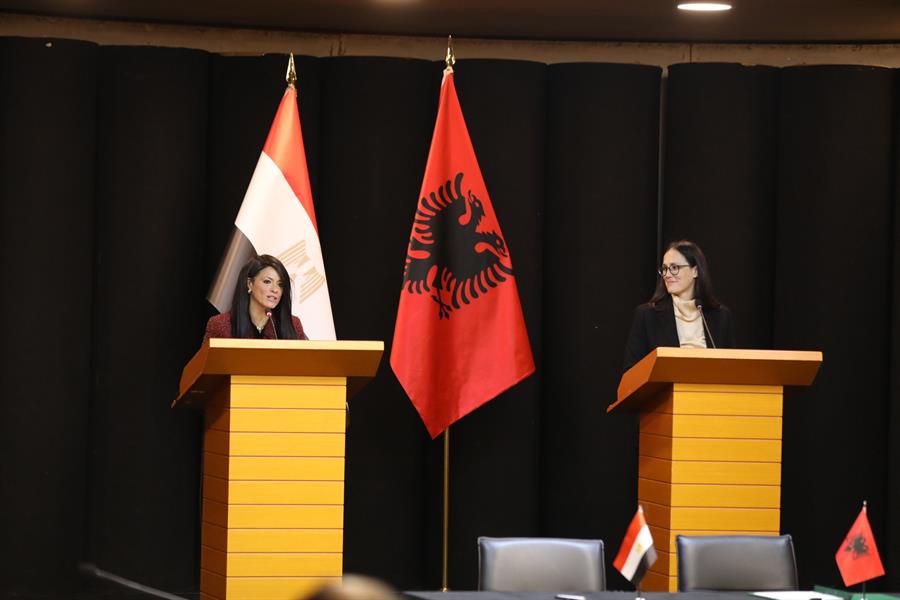Egypt’s Planning Minister Visits the National Center for Spatial Information

16 January 2024
H.E. Dr. Hala El Said, the Minister of Planning and Economic Development, inspected Today the National Center for Spatial Information, a division of the Ministry of Planning.
Accompanying her on the tour were Engineer Ashraf Abdel Hafeez, the Assistant Minister of Planning and Economic Development for Digital Transformation Affairs, and Counselor Mohamed Abazid, the Legal Advisor to the Ministry.
During the visit, Dr. Hala El Said underscored the importance of establishing a spatial information infrastructure as a crucial tool for comprehensive planning and the formulation of sustainable development strategies. This initiative aims to enable informed decision-making based on accurate information and to effectively monitor the implementation of these decisions.
Dr. Hala El Said highlighted that this commitment has led the Ministry of Planning to adopt the development of the Egyptian planning system and establish a comprehensive national project for the integration of the spatial information infrastructure. The goal is to enhance the efficiency of developmental and investment decisions.
Dr. Hala El Said also received a presentation on the efforts of the Spatial and Information Infrastructure Center in areas such as the development of government services, support for digital transformation policies, and its contribution to the implementation of government service development, as well as the enhancement of the information infrastructure for various state sectors.
During the visit, Dr. Hala El Said learned about the center's role in mobile technological centers and service centers across Egypt. The total number of delivered mobile service centers reached 251, with 25 centers currently being equipped. Additionally, 198 mobile technology centers have been handed over to 11 entities. Furthermore, 53 mobile service centers offering civil status, real estate registration, documentation, social solidarity, and social insurance services have been deployed.
It's noteworthy that the center relies on building an integrated spatial information infrastructure for the Egyptian government using the latest technologies in satellite imaging and applications. The center employs aerial photography to produce unified fundamental state maps, generate reports on spatial variables, and houses various units, including one dedicated to satellite imaging using satellite technology for specialized government entities. Additionally, the center includes a unit specializing in providing unified and accurate spatial data that assists decision-makers in directing development decisions toward areas in greatest need. This unit relies on a spatial information platform that integrates data from government entities with fundamental maps. Moreover, there is a unit focusing on the analysis of spatial data that monitors the implementation of national projects, along with a unit dedicated to spatial variables related to national construction.









